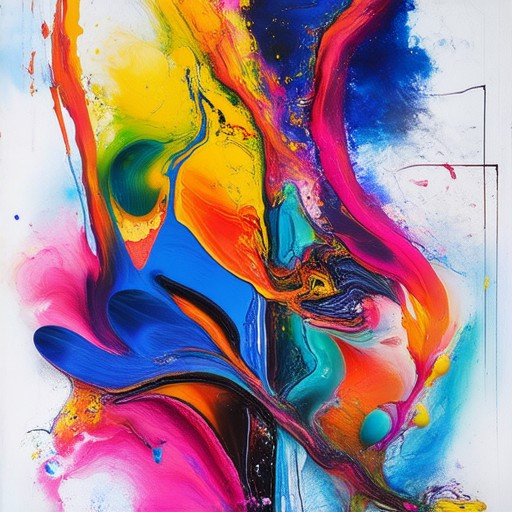Rock music has always been a powerful medium, capable of conveying raw emotion and stories through its beats and melodies. However, finding inspiration for rock songs can sometimes feel like an uphill battle, especially when creativity stalls or life itself feels uninspired. Whether you’re a seasoned musician or just starting out, discovering your next rock anthem requires a blend of passion, curiosity, and a willingness to explore new avenues. This guide will walk you through tried-and-true methods to unlock your creative potential, dive into diverse influences, and craft tracks that resonate with audiences. From drawing from real-life experiences to delving into unexpected music genres, we’ll explore how to overcome creative blocks and channel your inner muse. Are you ready to discover your next rock anthem? Let’s dive in and uncover the secrets to finding inspiration for rock songs.
Key Takeaways
- Find Inspiration Through Personal Experiences: Start by reflecting on your emotions and experiences to craft relatable and meaningful rock anthems.
- Expand Your Musical Horizons: Listen to diverse genres to spark creativity and uncover unexpected inspiration for your rock tracks.
- Leverage Lyric Inspiration Tools: Use tools like Songwriting Prompts to generate unique ideas and overcome creative blocks.
- Collaborate to Enhance Creativity: Partner with other musicians to gain fresh perspectives and refine your songwriting concepts.
- Organize Your Ideas: Keep a journal to jot down potential song concepts and review them regularly to spot connections and evolution over time.
- Experiment with Melodies: Play around with chords and rhythms to create memorable melodies that complement your lyrics.
- Learn from Successful Songs: Analyze popular rock songs to understand structure and emotional impact, while maintaining your unique style.
- Give Ideas Time to Brew: Set boundaries and prioritize your creative process to allow ideas to develop over weeks and months.
- Seek Constructive Feedback: Share your ideas with trusted friends or mentors to refine your concepts and keep you on the right track.
- Stay Curious and Explore New Sounds: Expand your musical palette by exploring new sounds, cultures, and stories to fuel your creativity.
- Start Small with a Simple Phrase: Begin songwriting with a single line or phrase that resonates with you to build upon.
- Freewrite to Spark Creativity: Engage in quick freewriting sessions to surface hidden ideas and discover potential gems.
- Build a Song Structure: Outline a basic structure using the ideas you’ve gathered to organize your thoughts and maintain focus.
- Use Hooks to Guide Your Vision: Start with a memorable hook to serve as a beacon for your song’s development.
- Collaborate for Enhanced Creativity: Partner with others to spark new ideas and refine your vision for the song.
- Analyze Successful Songs: Study the structure and flow of admired rock songs to find a template that fits your style.
- Embrace Imperfection: Allow yourself to experiment and evolve your ideas, knowing greatness often comes from revisiting rough drafts.
- Set Daily Writing Goals: Establish a consistent routine to keep creativity alive and build momentum toward your next masterpiece.
- Trust the Creative Process: Overcome creative blocks by embracing uncertainty and enjoying the journey of discovery.
By implementing these strategies, you can unlock endless possibilities for creating rock anthems that resonate with your audience and stand out in the music scene.

Where Can I Find Inspiration for Songs?
Inspiration for songs can be found through various avenues, ranging from music blogs to online communities and educational resources. Here are some effective ways to discover songwriting inspiration:
- Oedipus Band Blog : As a rock music enthusiast, our blog is a treasure trove of exclusive content, including behind-the-scenes stories and music reviews. Explore Oedipus Band to dive into our latest articles and gain insights into the creative process of songwriting.
- Music Forums and Communities : Engage with fellow musicians and music lovers on platforms like Reddit (e.g., r/MusicProduction, r/Songwriting) or specialized forums. These spaces offer invaluable advice, tips, and inspiration from experienced creators.
- YouTube Tutorials and Vlogs : Channels dedicated to songwriting, such as those by producers and composers, often share detailed processes and tips. Watching these can provide unique perspectives and techniques to fuel your creativity.
- Local Music Scenes : Attend live performances or join local bands to experience diverse musical styles firsthand. Collaborating with other musicians can also spark new ideas and directions for your own compositions.
- Online Songwriting Courses : Platforms like Udemy and Coursera offer courses taught by industry professionals. These can provide structured guidance, exercises, and inspiration to help you develop your songwriting skills.
- Exploring Different Genres : Broaden your horizons by listening to a variety of music genres. Exposure to unique sounds and rhythms can inspire fresh ideas and approaches for your own songs.
How to Fix Lack of Inspiration in Music
To address the lack of inspiration in music, consider implementing the following strategies:
- Diversify Your Music Collection : Expand your playlist by incorporating various genres and artists. Explore beyond your usual preferences to discover new sounds and styles that might reignite your interest.
- Experiment with New Genres : Try listening to different music genres such as classical, jazz, electronic, or world music. These genres often offer unique textures and compositions that can break the monotony of familiar tunes.
- Create Themed Playlists : Design playlists centered around specific emotions or themes. For instance, a “Mood Boost” playlist for uplifting songs or a “Chill Vibes” playlist for relaxing tracks can enhance the listening experience.
- Seek Recommendations : Utilize music recommendation platforms to explore new artists and tracks suggested by friends or algorithms. Platforms like Spotify and Apple Music often provide tailored suggestions based on your listening history.
- Attend Live Events : Experience music firsthand by going to concerts or festivals. The live energy can provide a fresh perspective and introduce you to popular songs that may not translate well to recorded formats.
- Explore Cultural Sounds : Delve into music from different cultures or regions. Traditional instruments and unique rhythms can offer a novel listening experience and inspire creativity.
- Collaborate with Others : Partner with friends or colleagues who have diverse musical tastes. Share playlists and discuss favorite tracks to discover new artists and styles together.
- Take Breaks Intelligently : Sometimes, stepping away from music can heighten your appreciation upon return. Engage in other activities like reading or exercising before revisiting your music collection.
By applying these strategies, you can revitalize your music experience and find renewed inspiration in the art of sound.

Where Does Artist Music Get Its Inspiration From?
Artists often draw inspiration from a variety of sources, which can include:
- Personal Experiences : Many musicians find creativity through their own life experiences, whether it’s a challenging time, a happy moment, or something that resonates emotionally.
- Nature and Environment : The beauty of landscapes, sounds of nature, or the energy of a place can inspire melodies and songwriting.
- Other Artists : Listening to different genres and studying musical styles can spark new ideas and approaches.
- Stories and Narratives : Telling a story through music or reflecting on historical events can provide a foundation for compositions.
- Daily Life Observations : Noticing patterns, emotions, or interactions in everyday life can lead to unique song concepts.
- Collaborations : Working with other artists or collaborators can bring fresh perspectives and ideas into the creative process.
- Cultural Influences : Drawing from cultural traditions, languages, or instruments can add depth and authenticity to music.
- Muse : Sometimes, inspiration can come from unexpected places, like a phrase overheard, a visual image, or a feeling that needs to be expressed musically.
Artists often explore these avenues to craft music that resonates personally and connects with audiences. The process is deeply individual, allowing for endless possibilities in creativity and expression.

How to Find an Idea for a Song?
Finding the perfect song idea can feel like searching for a needle in a haystack, but with the right approach, you can unlock endless possibilities. Here’s a step-by-step guide to discovering your next musical masterpiece:
- Start with What You Love
We believe that the most relatable and meaningful songs often stem from personal experiences and emotions. Begin by reflecting on moments or themes that resonate with you. Whether it’s love, heartbreak, adventure, or everyday struggles, these feelings can serve as a powerful foundation for your lyrics. - Explore Various Genres
Don’t limit yourself to just one type of music. Listen to diverse genres to spark creativity. For instance, a melody from a jazz standard might inspire a pop beat, while a folk tune could lead to an electronic remix. Broadening your horizons can open up unexpected avenues for innovation. - Use Lyric Inspiration Tools
Sometimes, the best ideas come from unexpected places. Try using lyric generators or explore songwriting prompts designed to spark creativity. Websites like Songwriting Prompts offer unique scenarios to fuel your imagination. - Collaborate with Others
Working with fellow musicians or friends can bring fresh perspectives. Discuss your ideas with collaborators and watch how they challenge or enhance your concepts. Collaboration often leads to breakthroughs you wouldn’t have thought of alone. - Keep a Journal of Ideas
Maintain a notebook or digital tool to jot down potential song concepts as they come to you. Even the smallest ideas can evolve into something extraordinary over time. Review your notes periodically to see connections between different ideas. - Experiment with Melodies
Once you have a concept, experiment with melodies. Play around with chords and rhythms to see how they complement your lyrics. A great melody can elevate even the simplest words into something memorable. - Study Successful Songs
Analyze popular songs to understand what makes them work. Pay attention to structure, word choice, and emotional impact. While you shouldn’t copy, studying these elements can give you a framework for crafting your own unique pieces. - Set Boundaries and Prioritize
Give your ideas time to brew. Don’t rush the creative process. Set aside dedicated time each day to work on your projects, and watch how your ideas develop over weeks and months. - Seek Feedback
Share your ideas with trusted friends or mentors who can provide constructive feedback. Their insights can help refine your concepts and keep you on the right track. - Stay Curious and Explore
Keep exploring new sounds, cultures, and stories. The more you expose yourself to different experiences, the richer your songwriting palette becomes. Remember, there’s no one-size-fits-all formula for creating a hit song—just passion, dedication, and a willingness to grow.
By following these steps, you’ll not only find the perfect song idea but also develop a process that allows you to continuously create music that resonates with your audience.
How to Start a Song When You Have No Ideas
Starting a song when you have no ideas can be overwhelming, but with the right approach, you can overcome creative blocks and find your inspiration.
1. Begin with a Simple Phrase
Start by writing down a single line or phrase that resonates with you. It can be anything—from a fragment of a memory to an emotion you’re feeling. This serves as a foundation to build upon.
2. Explore a Theme or Emotion
Choose a theme or emotion that you want to explore. Whether it’s love, heartbreak, adventure, or personal growth, narrowing your focus can guide your creativity.
3. Freewrite for Inspiration
Set a timer for five minutes and freewrite without stopping. This allows your subconscious mind to surface ideas that may not otherwise emerge. Afterward, review what you’ve written for potential gems.
4. Build a Basic Structure
Outline a simple structure using the ideas you’ve gathered. Consider starting with a verse, then a chorus, and so on. This framework can help organize your thoughts and keep you on track.
5. Use a Hook as a Starting Point
Begin with a memorable hook—a catchy chorus or bridge. This can serve as a beacon for the rest of the song, helping you stay focused and inspired.
6. Collaborate for Creativity
Collaborating with others can spark new ideas. Share your initial concepts with a friend or co-writer and see how their input can enhance your vision.
7. Analyze Successful Songs
Study the structure and flow of songs you admire. While it’s important to remain original, understanding common structures can provide a template to work from without copying.
8. Embrace Imperfection
Don’t worry about perfection at the outset. Allow yourself to experiment and evolve your ideas. Greatness often emerges from revisiting and refining rough drafts.
9. Set Daily Writing Goals
Establish a routine by dedicating time each day to writing, even if it’s just a line or two. Consistency helps build momentum and keeps creativity alive.
10. Trust the Process
Finally, trust the process. Creative blocks are temporary, and embracing the uncertainty can lead to surprising and meaningful breakthroughs. Enjoy the journey of discovery!

How to Get Your Song Noticed
To effectively get your song noticed, follow these organized steps:
- Develop a Unique Sound : Craft a song that stands out with a distinctive melody, lyrics, or instrumental arrangement. A memorable hook can significantly attract listeners.
- Network with Industry Professionals : Connect with musicians, producers, and influencers through online platforms and music communities. Attend local events or join forums to build valuable relationships.
- Leverage Online Platforms :
- Streaming Platforms : Upload your song to platforms like Spotify, Apple Music, and YouTube. Aim to get featured on curated playlists for broader exposure.
- Social Media : Share your song on platforms like Instagram, TikTok, and Twitter. Engage with followers by responding to comments and messages to foster a loyal fan base.
- Collaborate with Others : Partner with established artists or producers to enhance your credibility. Approach them via mutual contacts or submit a well-crafted demo with a cover letter explaining your vision.
- Create Compelling Visual Content : Produce a high-quality music video or short clips that align with your song’s theme. Uploading these to YouTube and platforms like TikTok can boost visibility and shareability.
- Engage Fans Actively : Build a community by interacting with your audience. Consider running contests or promotions to encourage fan participation and loyalty.
- Seek Press and Media Coverage : Pitch your song to local radio stations and music journals. While a publicist can aid this process, personal outreach may also be effective.
- Run Targeted Online Campaigns : Utilize social media ads to reach specific demographics. Look for cost-effective ad options to maximize your marketing impact without overspending.
- Stay Persistent and Adapt : Consistently reach out to potential promoters and adjust your strategy based on feedback and results. Persistence is key to long-term success.
By systematically applying these strategies, you can increase the likelihood of your song gaining recognition and attracting a wider audience.



0 Comments